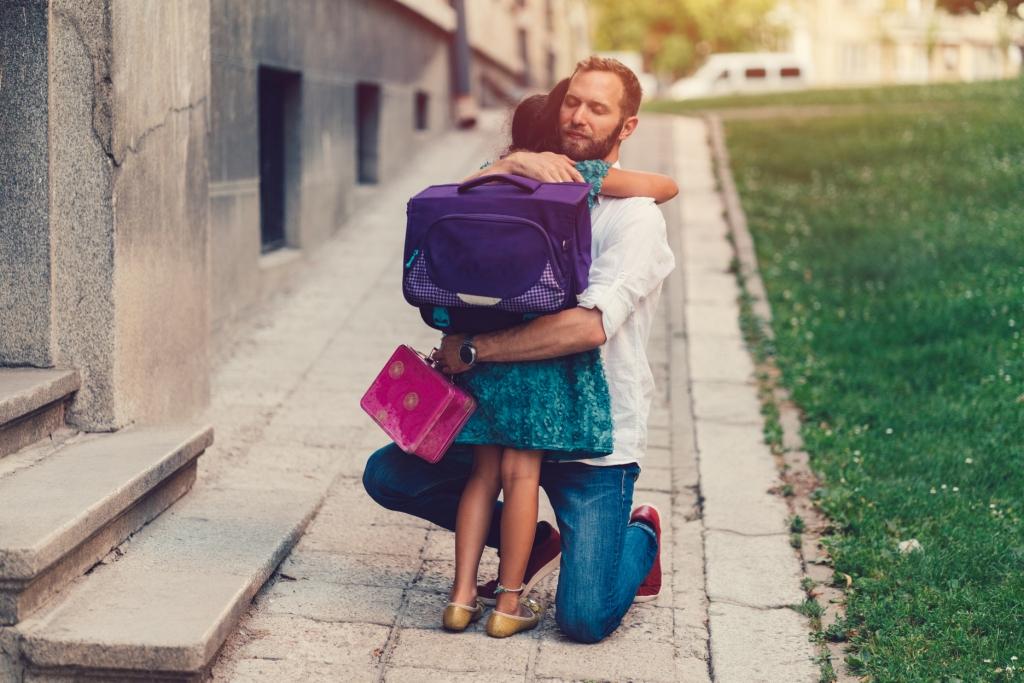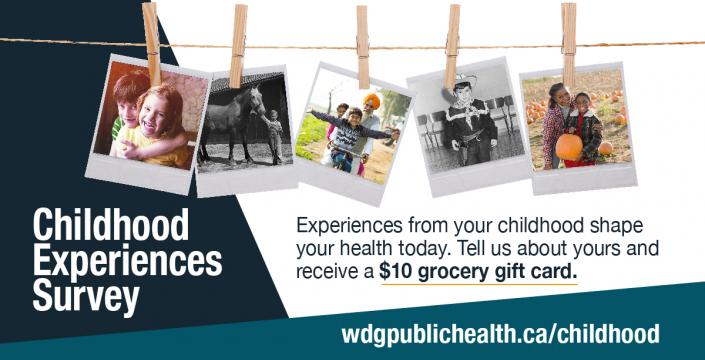Growing up, did you ever have that one person who you felt supported you and loved you unconditionally? Someone who you knew would always be there for you if you were feeling hurt, scared or stressed? It could have been your parent, aunt, teacher, coach or neighbour. We know those caring relationships make you feel safe and loved, but it turns out they also improve lifelong health.

All childhood experiences, both positive and negative, are instrumental in shaping a person’s health and overall success in life. Positive experiences provided by a caring adult actually help a child’s brain develop. These positive experiences can be simple, everyday occurrences like soothing a crying baby or engaging a curious toddler in conversation. All of these small moments add up to big impacts in child development. Caring adults can also be there to help prevent lasting damage when a child faces stressful or negative experiences. Adults can foster resilience in children and help buffer the effects of negative life events when they do occur.
Researchers use the term adverse childhood experiences, or ACEs, to describe stressful or traumatic events that occur before the age of 18. They include:
- Abuse (physical, emotional, or sexual)
- Neglect (physical or emotional)
- Household dysfunction (household member struggling with mental illness, incarcerated household member, mother treated violently (intimate partner violence), substance abuse by a household member, or parental separation or divorce)

The Truth About ACEs Infographic by RWJF on RWJF.org
Infographic stats:
How common are ACEs? The ACE Study revealed the following estimates:
- Abuse: Physical abuse: 28.3%; sexual abuse: 20.7%; emotional abuse: 10.6%
- Neglect: Emotional neglect: 14.8%; physical neglect: 9.9%
- Household dysfunction: Household substance abuse: 26.9%; parental divorce: 23.3%; household mental illness: 19.4%; mother treated violently: 12.7%; incarcerated household member: 4.7%)
- Of 17,000 ACE study participants, 64% had experienced at least 1 ACE. 36% experienced 0 ACEs; 26% had 1 ACE; 16% had 2 ACEs; 9.5% had 3 ACEs; 12.4% had 4+ ACEs
What impact do ACEs have?
- As the number of ACEs increases, so does the risk for negative health outcomes
- Possible risk outcomes include:
- Behaviours: lack of physical activity, smoking, alcoholism, drug use, missed work
- Physical and mental health: severe obesity, diabetes, depression, suicide attempts, STIs, heart disease, cancer, stroke, COPD, broken bones
An explosion of research over the past few decades has linked ACEs to many different types of common health outcomes such as heart disease, cancer and diabetes. For example, people who have experienced four or more ACEs are at two times greater risk of developing heart disease, when compared to people who have experienced none. Individuals with high ACE scores (6 or more) have a 20-year shorter life expectancy than individuals with no ACEs.
It’s important to note that ACEs are very common. They can affect anyone; regardless of their social standing, income, or the neighbourhood they live in. In the original American study about childhood experiences, over two-thirds of the 17,000 respondents (64%) had experienced one or more ACE. ACEs are also intergenerational, meaning that if your parents experienced them, it’s much more likely that you will as well.
However, it’s not all bad news!
“I believe we can rewrite the story of adversity and break the intergenerational cycle of toxic stress” - Dr. Nadine Burke Harris, Pediatrician
There are strategies for both preventing ACEs in early life and for buffering the effects of ACEs once they have occurred. Many of these strategies involve developing resilience. Resilience is the ability to bounce back from difficult experiences. It’s possible to become more resilient at any age, but it’s easiest to do this in early childhood. Learn more about how communities can prevent ACEs.
The more we know about ACEs, the more we can do to prevent them from causing lasting damage.
*Update: March 11, 2019: This survey is now closed. Thank you to those of you who participated.
Public Health is launching a study to learn more about childhood experiences, resilience and how both of these concepts are related to lifelong health in our community. You can help by completing a 15-20 minute survey. This survey is available to any adult (18 years or older) living in Wellington, Dufferin or Guelph. As a token of our thanks we’ll send you a $10 grocery store gift card. Take our survey or learn more about the study.

Do you have ACEs in your past? Are you struggling? Need help?
Contact your family physician or call:
- Here 24/7 Waterloo Wellington: 1-844-437-3247
- 24.7 Crisis Support Peel Dufferin: 1-888-811-2222
